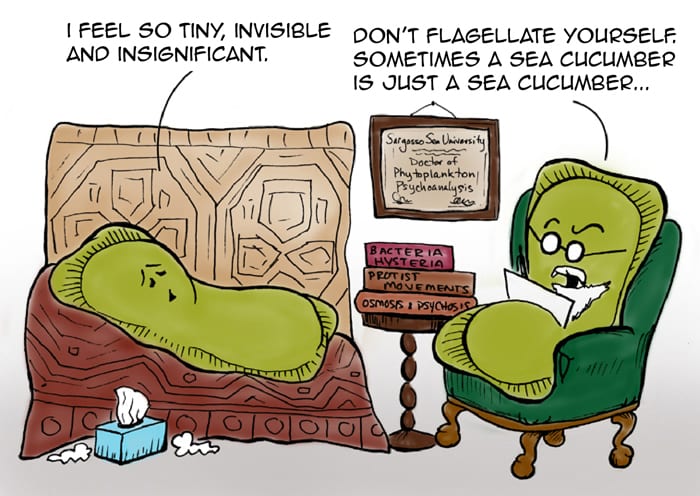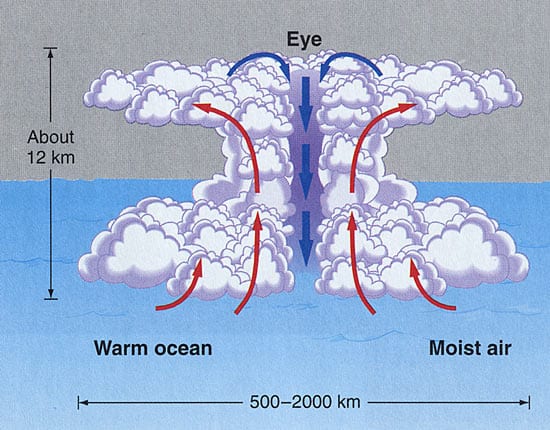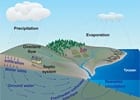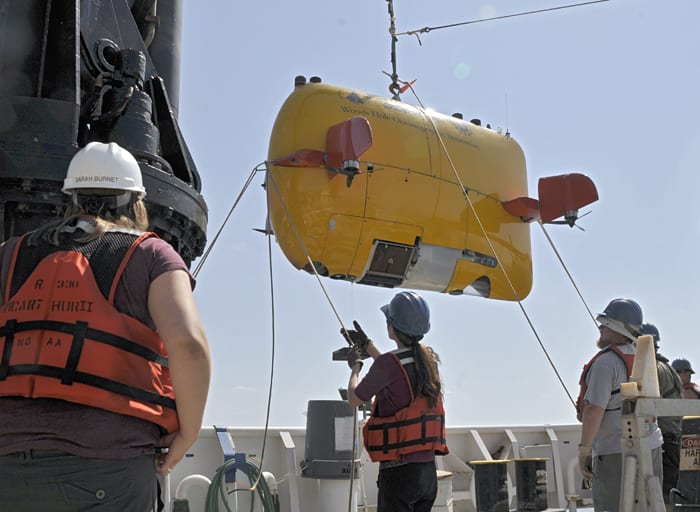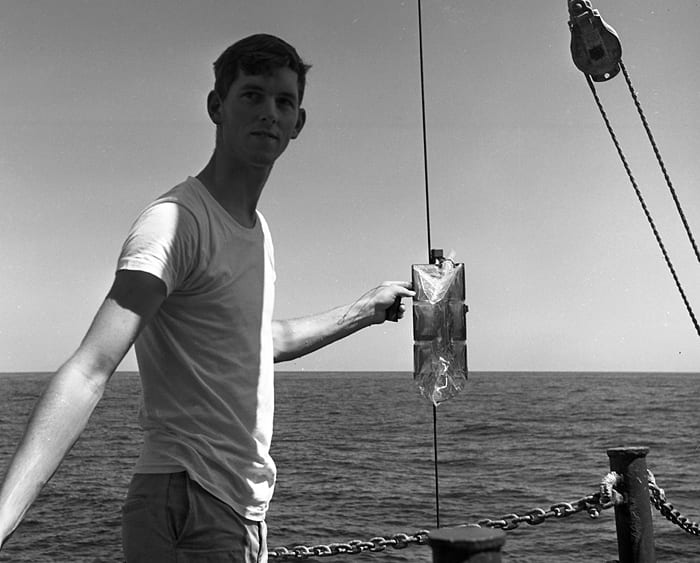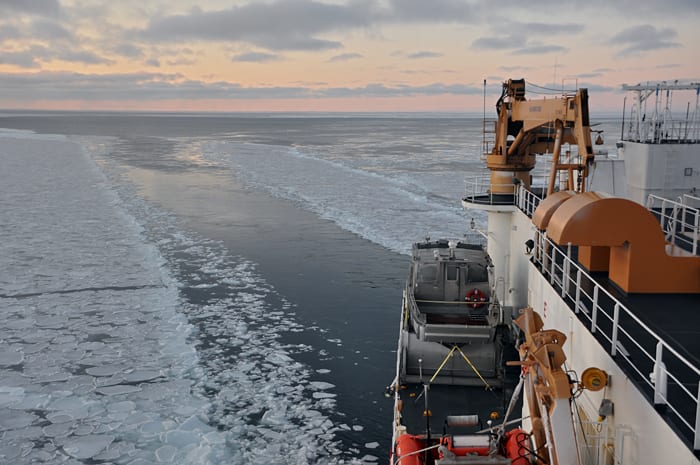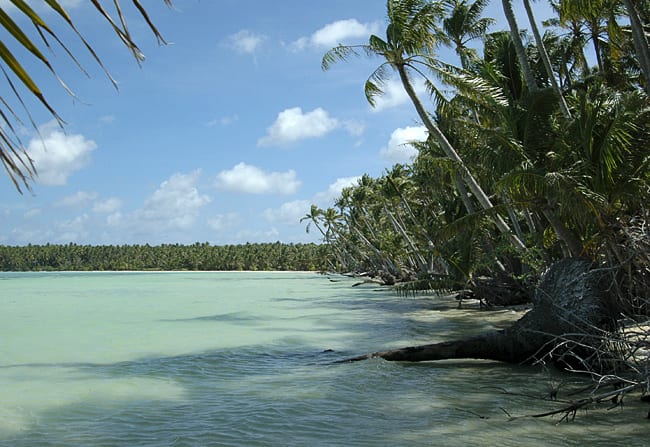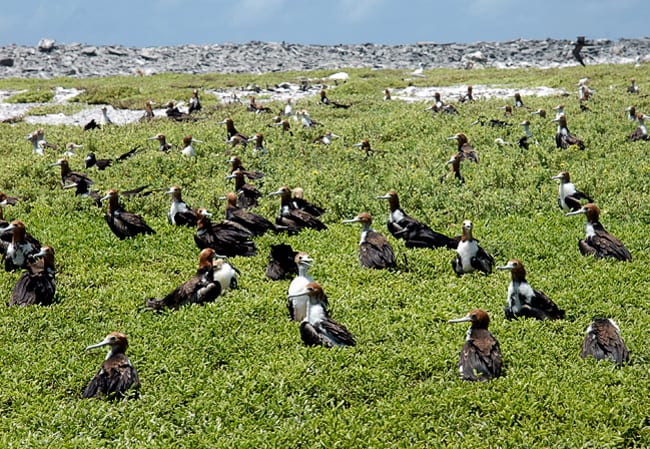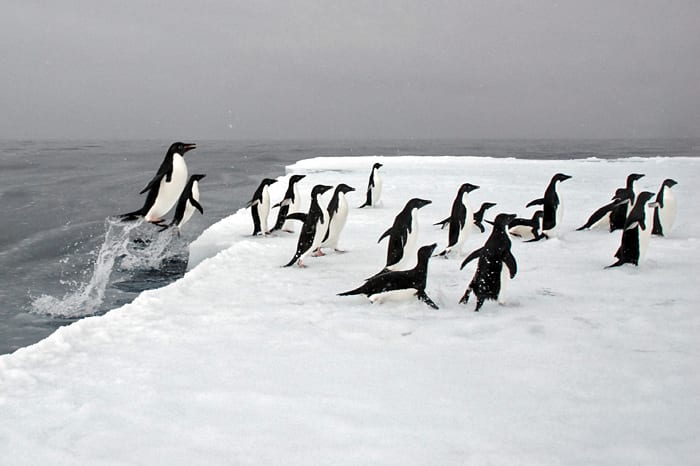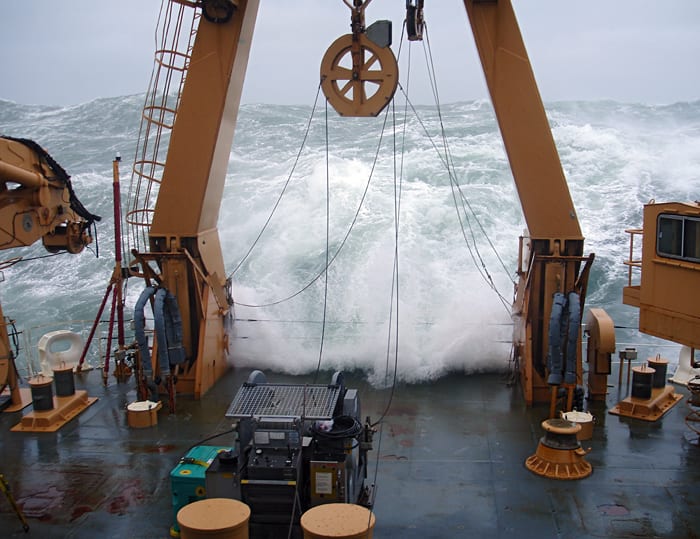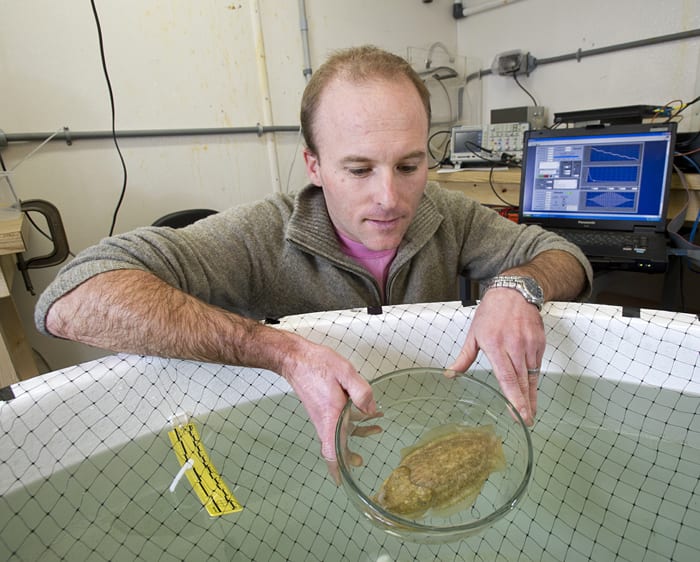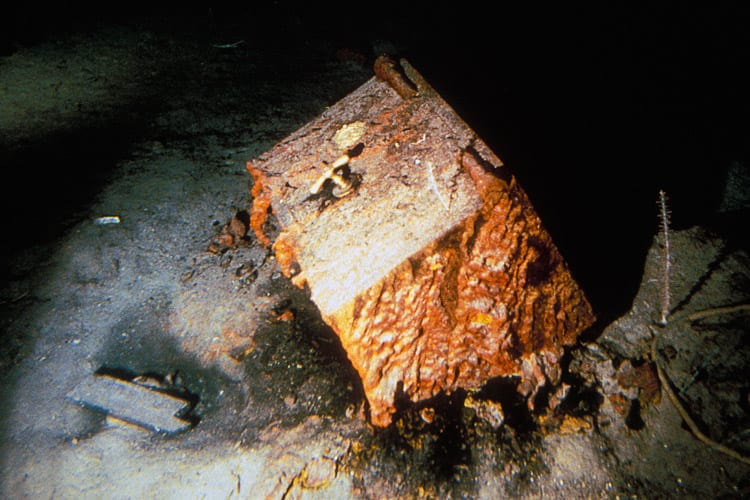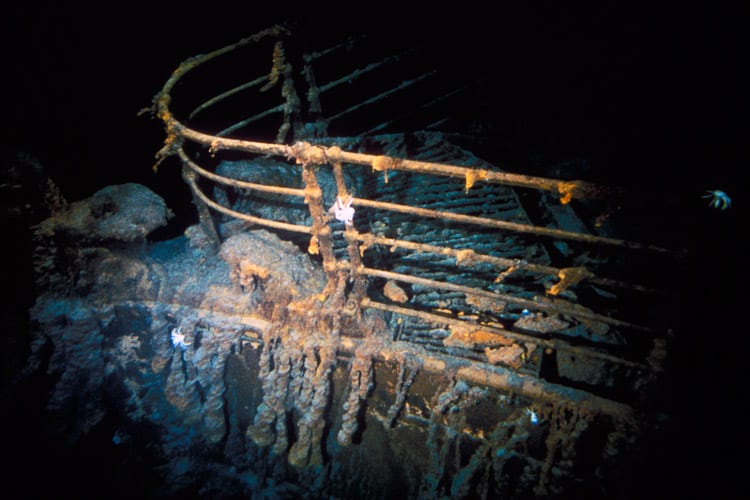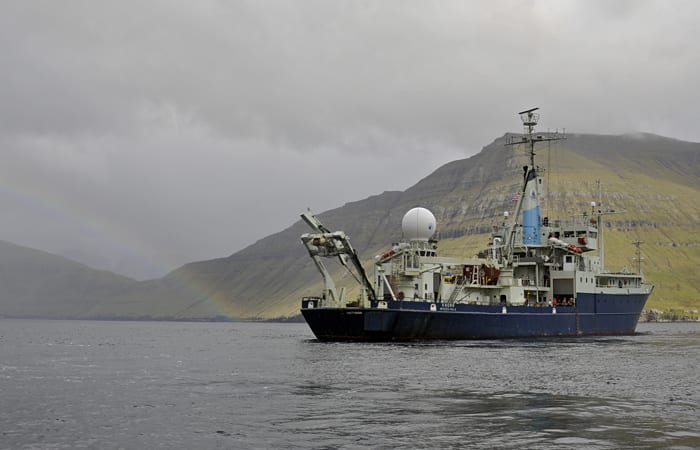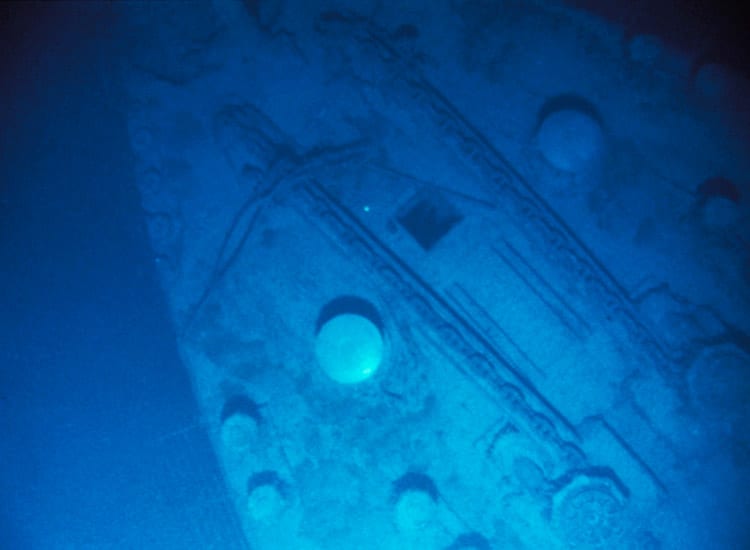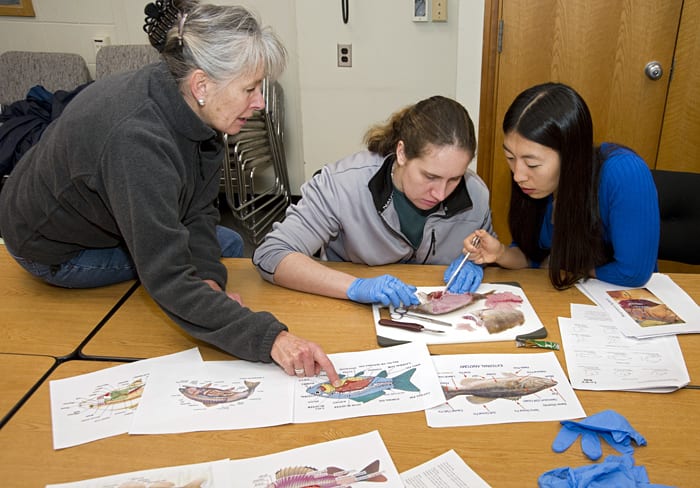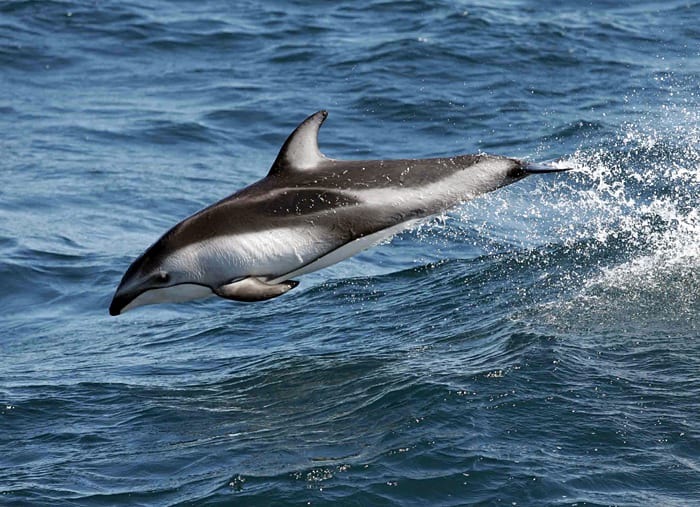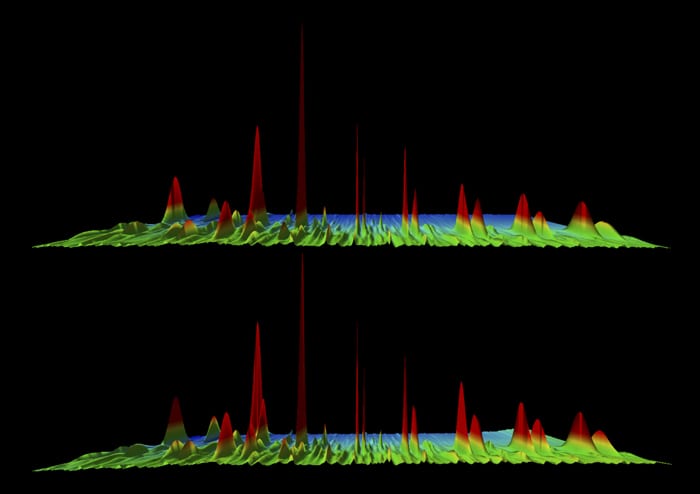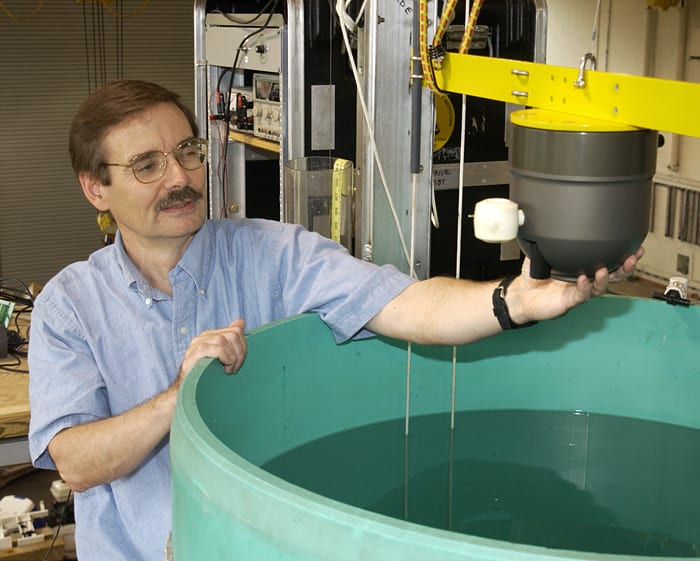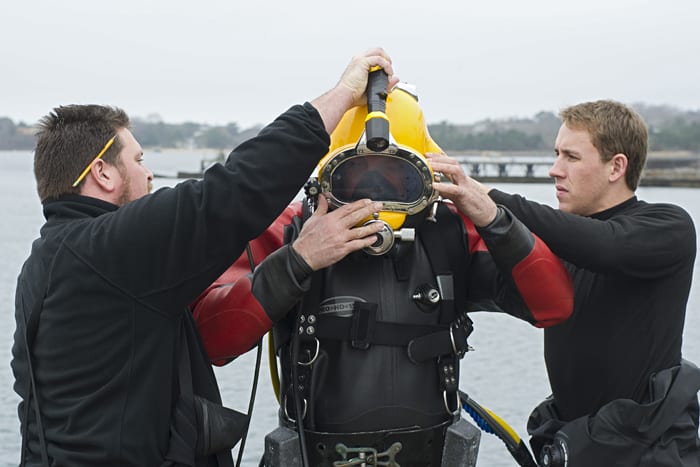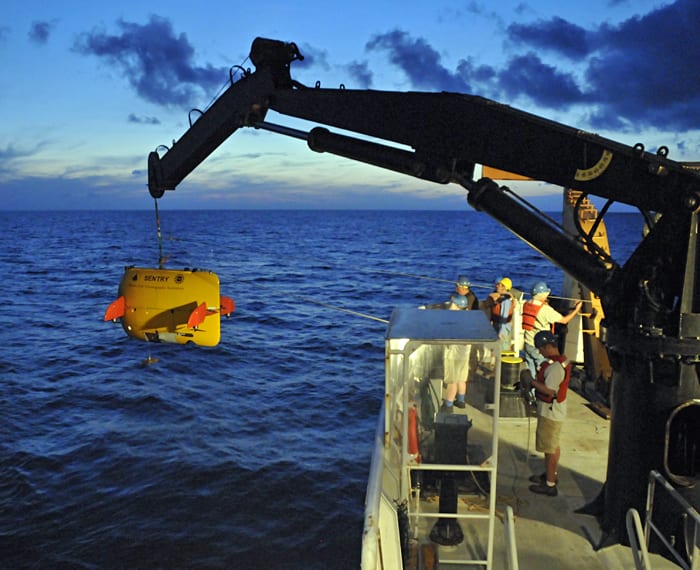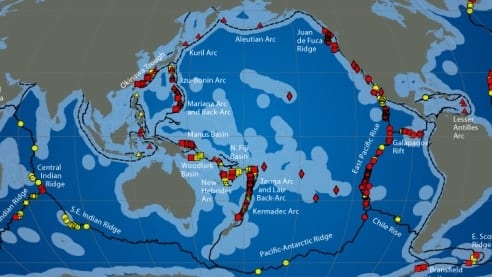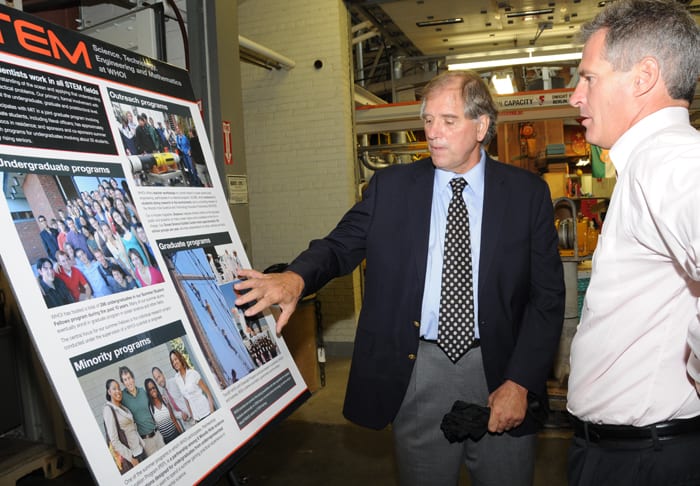Multimedia Items
Psychotherapy for Plankton
Hurricane Cross Section
Fire and Ice
The U.S. Coast Guard icebreaker Healy operates in the North Pacific and Arctic Oceans from late spring until early winter, helping scientists carry out research in the far north. It…
Read MoreHydrologic Cycle in Coastal Zones
Look Ma, No Lines
WHOI biologist Annette Frese Govindarajan (center, blue hard hat) and data manager Sarah Burnet (left), assisted with the launch of the autonomous underwater vehicle Sentry in the Gulf of Mexico in…
Read MoreGo to Sea, Young Man
In 1965, WHOI microbiologist John Waterbury was a young researcher studying microorganisms in the upper ocean that convert inorganic nitrogen into a form that phytoplankton can use to drive the…
Read MoreSmooth Sailing Through Pancake Ice
The icebreaker USCGC Healy opens a path through first-year pancake ice in the Amundsen Gulf during a 2011 mooring cruise in the Arctic Ocean. Though pancake ice can cover large…
Read MoreVoyage to the Remote Phoenix Islands
Voyage to the Remote Phoenix Islands
We’re Outta There!
Associate Scientist Mak Saito saw plenty of Adélie penguins during his International Polar Year expedition to Antarctica in 2009. His study focused on the collection of sea-ice and water column algae, but another project soon emerged.…
Read MoreA Swell Time on Healy
Icy Arctic swells rocked the U.S. Coast Guard icebreaker Healy during a six-week science expedition in 2011. WHOI biologist Carin Ashjian and colleagues Sam Laney and Krista Longnecker visited the Arctic…
Read MoreTesting, 1, 2, 3
WHOI biologist Aran Mooney places a cuttlefish, a close relative of squid, into a tank to test how it responds to sound. Mooney previously showed that sounds provoke nerve responses…
Read More1986 images from the debris field
1debrissafe_210922.jpeg
Read More1986 images of the sunken Titanic
End of the Rainbow, Ends of the Earth
In August 2011, R/V Knorr sailed to the North Atlantic to deploy a set of moorings across the Denmark Strait. The moorings will remain in place for one year as…
Read MoreFirst photos from the discovery of the Titanic
Intro to Ocean Research
Skidmore College senior and Ocean Research Experience (ORE) Fellow Jay Brett (center) dissects a fish with the help of WHOI marine biologist Vicke Starzcak (left) and MIT/WHOI graduate student Maya…
Read MoreCan Dolphins Get the Bends?
Researchers think dolphins may be particularly good at avoiding something humans are susceptible to: the bends. Evidence suggests dolphins get bubbles in their veins when they swim up from the…
Read MoreMountains Upon Mountains
What look like colorful floating landscapes might better be called “oilscapes.” They were created by WHOI scientists using comprehensive two-dimensional gas chromatography, which identifies thousands of individual chemical compounds that…
Read MoreAn Exceptional Fellow
WHOI Senior Scientist Raymond Schmitt has been elected a 2012 fellow of the American Geophysical Union (AGU), one of 61 new fellows who are being recognized by AGU for “exceptional scientific…
Read MoreDressing for Work
Assistant marine ops coordinator Chad Smith and Julian Schanze, a graduate student in the MIT/WHOI Joint Program, help Dive Officer Ed O’Brien into his hardhat diving gear. The three divers…
Read MoreSentry Away
One May 2011 evening in the Gulf of Mexico, engineers readied the autonomous underwater vehicle (AUV) Sentry to dive in search of deep-water corals. Scientists aboard the vessel McArthur II…
Read MoreGlobal Distribution of Hydrothermal Vent Fields
A Visionary Fellow
Vice President for Academic Programs and Dean Jim Yoder (left) gave U.S. Senator Scott Brown (Mass.) an overview of WHOI’s science, technology, engineering and mathematics (STEM) program in August 2011. On…
Read More
